The larger part of my research is about those soldiers who fell in the Great War at the Western Front, but I will also try to cover other Swedish individuals who fought in the different armies. Sometimes I find really interesting facts in both books and archives that is worth to mention in a wider context.
Below I will give you the short story about the Swedish born Lieutenant in the Canadian Expeditionary Forces, Adolf Berner.
Adolph was born in Hammenhög parish in Skåne, Sweden, as Adolph Bernhard Bengtsson and raised by his parents, his mother Karin Wedberg and his father, Abraham Bengtsson. One thing that I am thinking of when I see his surname is that maybe he chose to call himself after his second name, Bernhard, and use that as a surname, or maybe his fathers surname, Bengtsson, became Berner when he moved to Canada.
Adolph was born according to the book of birth in November 24, 1882, and is the same date as he also wrote in his Canadian Attestation papers. But in most of the other Swedish Church Books chapters the date is October 24, 1882, which made it a bit hard to find the correct data.
One other thing that I have discovered are some notes in the Swedish Church Books of an Adolph Bernhard Berner, so maybe he went back from North America? Here he also mentioned with his alternative date of birth, November 24, 1882. Below you will find some data about that some sources says that he left Sweden already in 1901. In this case I haven’t found any data that confirms my thoughts.
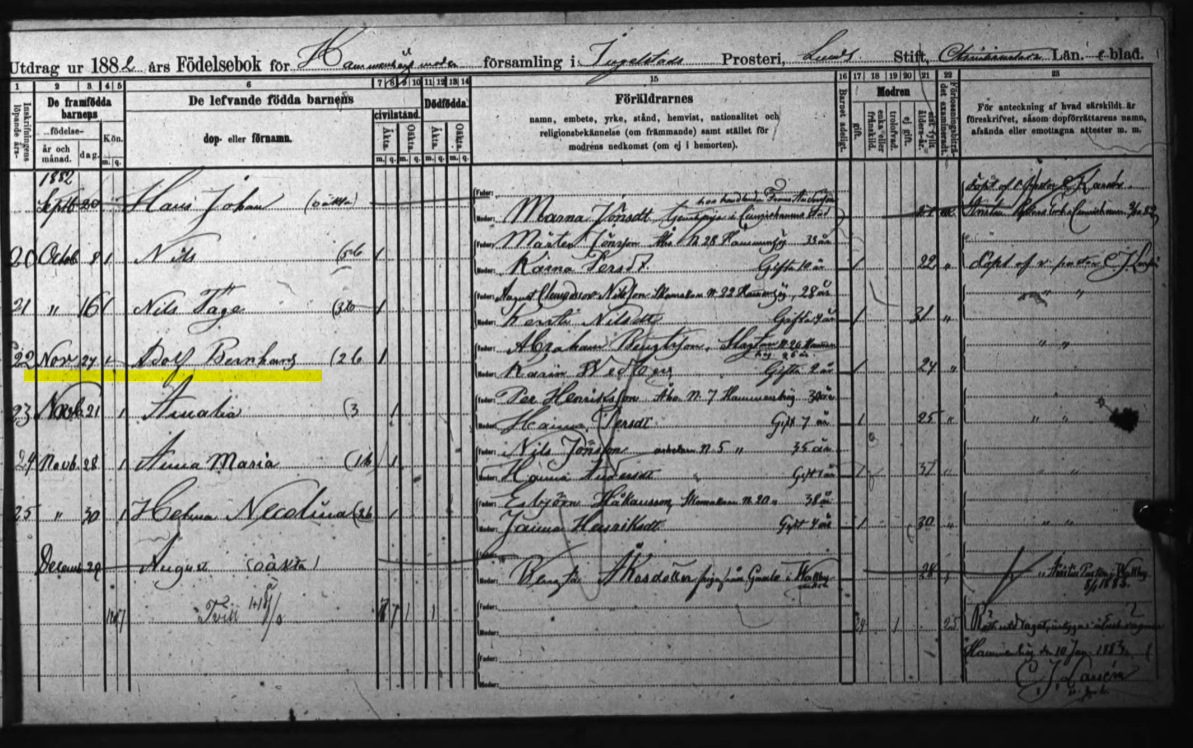
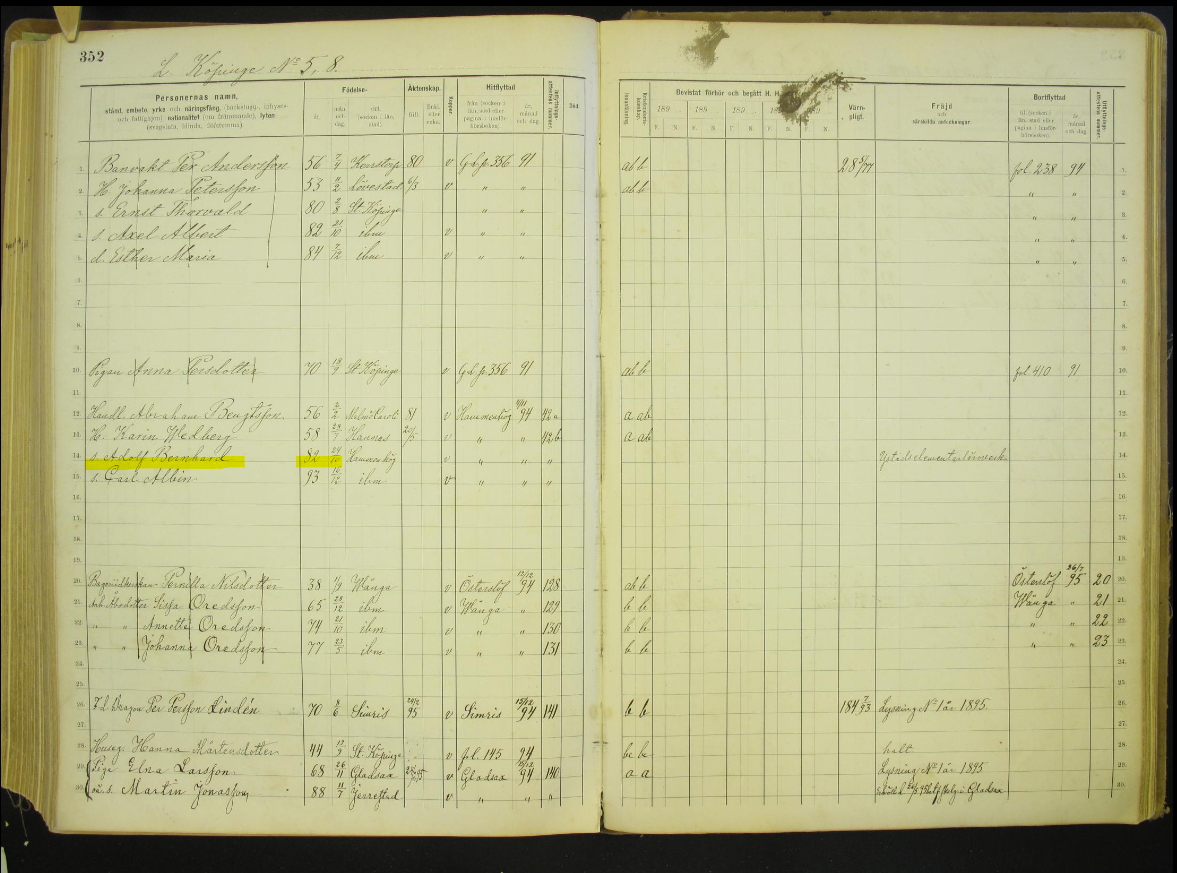

According to one source Adolph left Sweden for Canada in 1901, but I can only find the documents about when he arrived to US in April 1903. Adolph signed his attestation papers for the first time in 1915, for the 16th C.R Battalion, but also in 1917 when he signes his Officers Declaration Papers in June 1917.
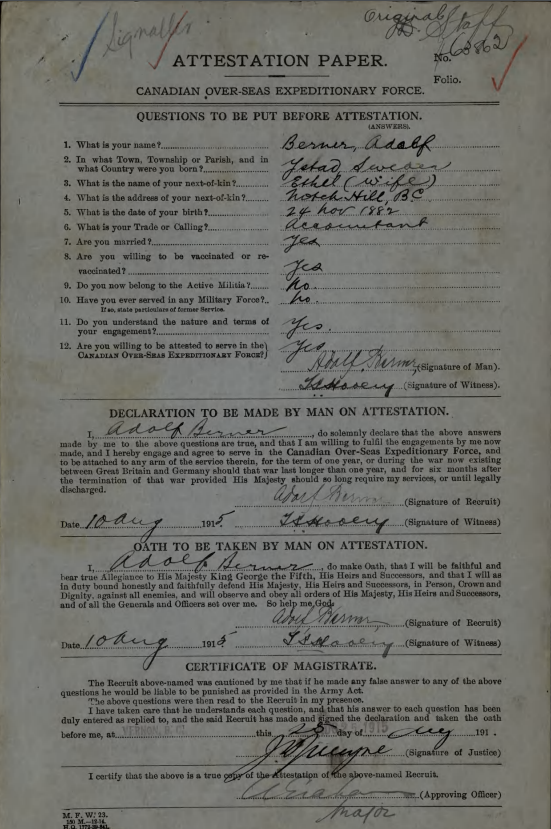
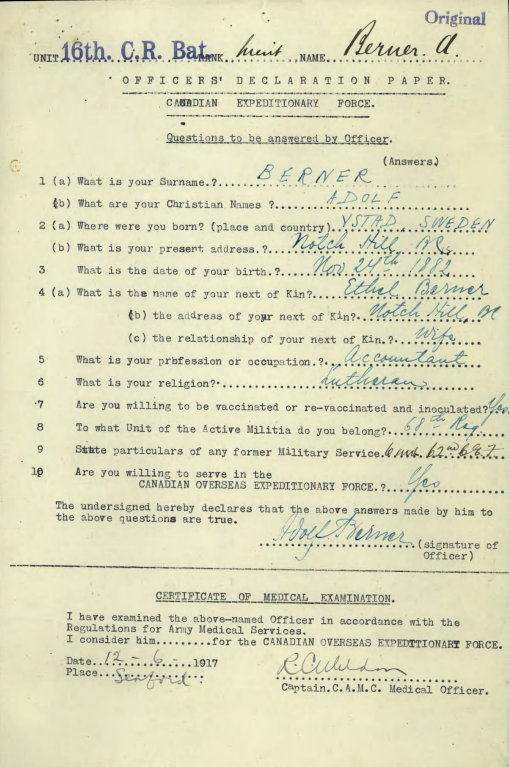
He seemed to have found his right element in the Army. In 1918 he was a Lieutenant but was noted as a A/Capt.
When he participated in the fightings around Bourlon and Raillencourt in France in September 1918 he did a great job and was nominated to Military Cross, which he also later recieved. The motivation:
“For conspicuous gallantry and ability during operations before Bourlon and Raillencourt, September 26/28th, 1918. He led his company excellently throughout the operations and by his display of tactical ability saved many casualties. At the end of the first phase of the operations, when he was the only company commander remaining, he took charge of the reorganization of his own and other companies making all necessary dispositions to repel any counter-attacks. During the second phase he did excellent work, and throughout showed great coolness and ability.”
The diary below mention Lieut A Berner in the diary from the period, when he fought for the 47th Canadian Infantry Battalion. The small map snippets below shows the area where he was fighting in each situation.
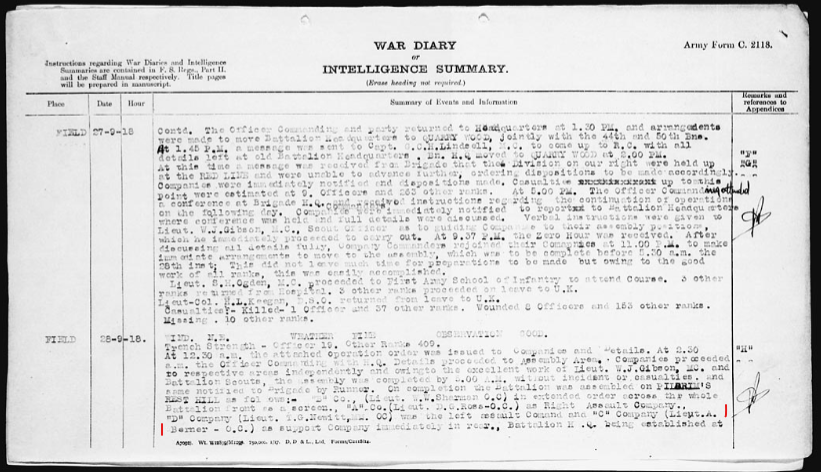


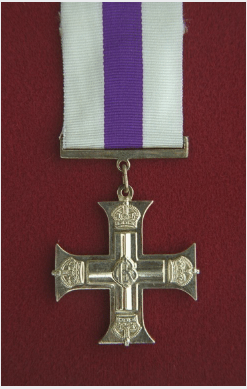
A few months later he received the bar to his Military Cross, when he fought in the region of Valenciennes in France, in November 1918. The Motivation:
“For conspicuous gallantry and devotion to duty during the action in front of Valenciennes on 1st November, 1918, in command of a company. When other companies became disorganized through loss of officers and NCO’s, he at once assumed command and personally rushed two machine-gun nests which were holding up the advance, in spite of the fact that they were firing at them at short range. His determination and great courage were a powerful factor in maintaining the moral of the whole unit under very heavy fire and trying circumstances.“
In the unit diary from November 1st, 1918, he is mentioned in the situation, which you can see in the diary below.
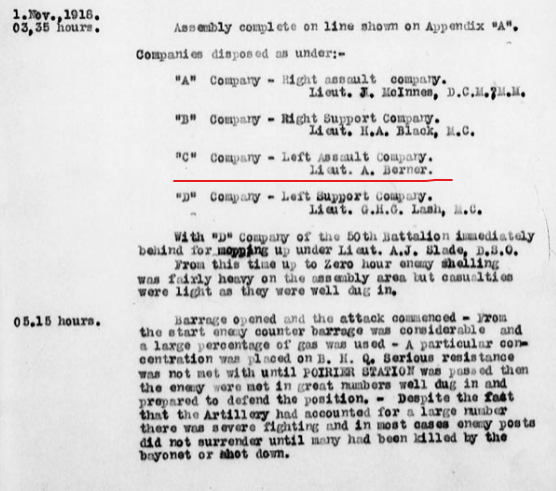

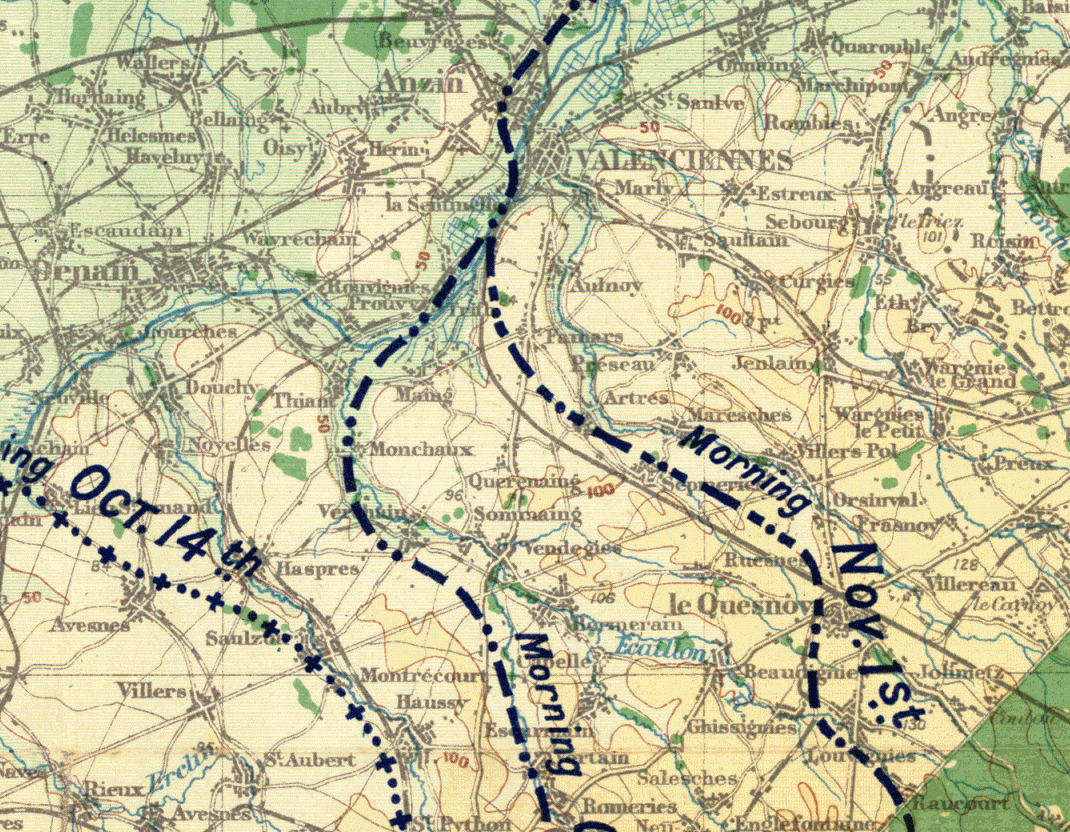

Adolph is assumed to have died in Vernon, Canada, in October 16, 1953, at an age of 70. I haven’t been able to find a photo of Adolph, but as soon I find any, I will put it up here in this article. May Adolph rest in peace.
